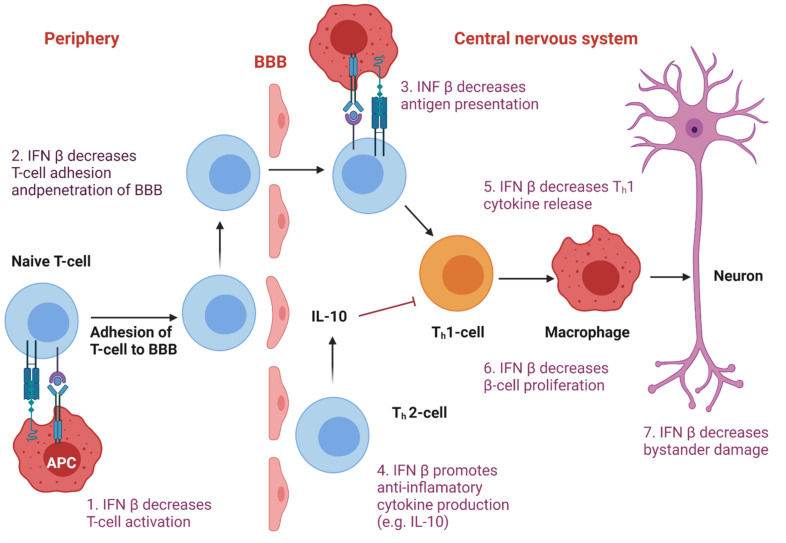Figure 7.
Biological activity of IFNβ in autoimmune diseases. Its action directly increases the expression and concentration of anti-inflammatory agents and down-regulates the expression of proinflammatory cytokines. The same pathway that enables interferon beta’s biological effects mediates its mechanism of action in MS. This cytokine binds to its specific receptors IFNR I and IFNRII on the surface of the main cells of the immune system (DC, TH1 TH2, and B cells). Ligand-receptor binding triggers a cascade of events within these cells that results in positive feedback from the molecule, increasing IFNβ levels and producing the expression of multiple ISGs such as MHC Class I, Mx protein, 2′/5′-oligoadenylate synthetase (OAS), β2-microglobulin and neopterin. These products have been found in serum and cellular fractions of blood from patients treated with interferon-beta. Created with BioRender.com.

